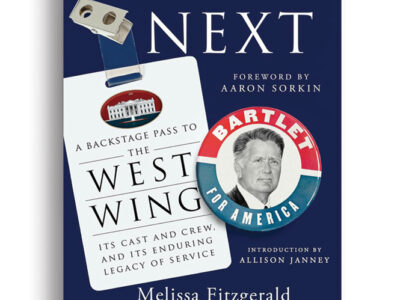Perry World House’s fall colloquium looks at the big picture.
As President Donald Trump W’68 addressed the United National General Assembly on September 25, some of the biggest names in international affairs convened in Irvine auditorium to discuss the effects of his policies—and those of presidents before him. Upwards of 1,000 students, faculty, staff, and community members gathered to listen to former president of Mexico Felipe Calderón, former US national security advisors Susan Rice and H. R. McMaster, and other guests of the Perry World House’s second annual fall colloquium, titled “Competing Visions of the Global Order.”
“The great thing about being ‘former,’” joked Richard Verma, former US ambassador to India, “is that you can say anything you want and there is very little repercussion.”
Views varied about the repercussions of recent policy responses to a host of global challenges, ranging from the refugee crisis to anxieties about international trade.
Susan Rice, who served under President Barack Obama from 2013 to 2017, lamented what she views as the current administration’s failure to nurture relationships with traditional allies. Rice cautioned, “We may have inflicted lasting damage on the world trade situation and international cooperation and our alliances. We have put our alliances under enormous strain.”
But the biggest threat, she claimed, is “allowing ourselves to be pitted against each other.”
“We are losing our domestic cohesion,” she warned. “We are denigrating facts. We are undermining freedom of the press. We are uncomfortable on college campuses with dissenting views and opinions, and we don’t want to be triggered by things we may disagree with. … We have leaders who, for their own political advantage, are exacerbating those divisions. But this is something that we can control as individuals and as a people.”
“I don’t think we’re at a crisis with our allies,” countered McMaster, who served under President Trump. He said he believes the president has strengthened ties with many countries. For example, he said, the US relationship with Japan is “stronger than ever” due to the countries’ cooperation over North Korea.
Furthermore, McMaster suggested, Trump’s tendency toward isolationism reflects realities his predecessors have been too quick to dismiss. “I think all of us took a holiday from history,” he said, stressing the foreign policy failings of previous presidencies. The post-Cold War period led Americans to be “overly optimistic about the control we have over complex situations,” he argued. “We became almost hubristic.” McMaster contended that successes like the 1991 Gulf War and the tech-driven financial boom of the 1990s provided the overconfidence that led to the decision to invade Iraq in 2003.
Lady Cathy Ashton, former high representative of the European Union for foreign affairs and security policy, stressed diversity as an advantage in a roundtable discussion. “Where we have not been successful is in seriously trying to explain the value of diversity in the world in which we live and the benefits of diversity that will come to each community.” Speaking directly to America, she added, “America is a nation built on that diversity, yet you too have to remind yourselves that that’s what you want.”
Turning to the topic of refugees, Ashton continued, “It’s very difficult to be confronted with what feels like a huge number of people in distress. But the truth is, either we find solutions as nations and as groups of nations and as a planet to the fact that people one way or another are going to move, or we will have to build walls higher and higher and face the consequences of those countries that don’t.”
Rounding out the day was the Penn Biden Leaders Dialogue, featuring former vice president Joe Biden, who is also Penn’s Benjamin Franklin Presidential Practice Professor, in conversation with former U.K. deputy prime minister Sir Nicholas Clegg.
Both statesmen talked about their own countries’ nationalist movements, polarization of parties, and the importance of young people voting.
Clegg voiced anxiety about what lies ahead. “We’re going through a period of transition, and periods of transition are often difficult,” he said. “They produce the best of people—as well as bringing out the worst in people.
“Just imagine if the 2008 financial crisis had happened now,” Clegg said. “I seriously doubt that we would now have the financial or political capacity to act multilaterally in the way the world did [at that time]—imperfectly perhaps, but nonetheless, it kind of did. And that worries me terribly because the next time we have a systemic crisis, I really worry that we don’t have the capacity to respond systemically.”
Wrapping up the day, Biden offered a final thought. Americans cannot be defined by religion, culture, or background, he said. “Try to define Americans today, and what is it other than that we basically agree to a prescription contained in the Constitution?” he asked. “When you press Americans hard, the one thing that unites them is this notion of how we treat each other.” —NP




